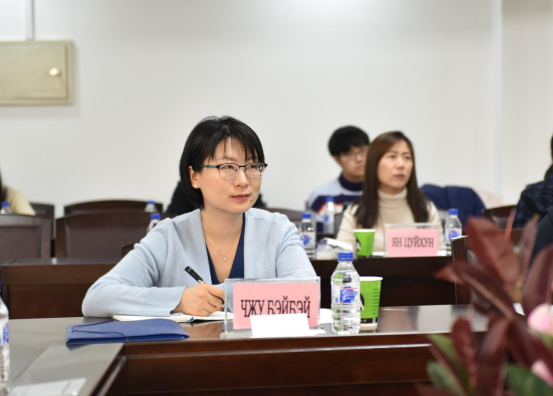From March 2nd to 15th, 2021, the 2021 Jilin University Global Competency Enhancement Program: International Workshop on Russian Economic History Research was successfully held in Jilin University. The event was co-sponsored by the Northeast Asian Studies College of Jilin University, the Northeast Asian Research Center of Jilin University, and the Jilin University-Moscow State University History Research Center, and guided by the Office of Global Engagement of Jilin University, and was carried out online and offline at the same time. More than 10 top scholars in the field of Russian historiography, including experts and scholars from many fraternal universities and scientific research institutions in China, as well as academicians С.П. Karpov, Academician Л.С. Belousov, Academician Л.И. Borodkin, Professor Ю.А. Petrov and other top scholars from Moscow State University and the Russian Academy of Sciences, gathered on line to build quality universities together, bringing a wonderful historical feast to the students of Jilin University , and at the same time deeply discussed and looked forward to the results and development prospects of cooperation between China and Russia in the field of Russian history. The two-week series of international workshops culminated on March 15th .
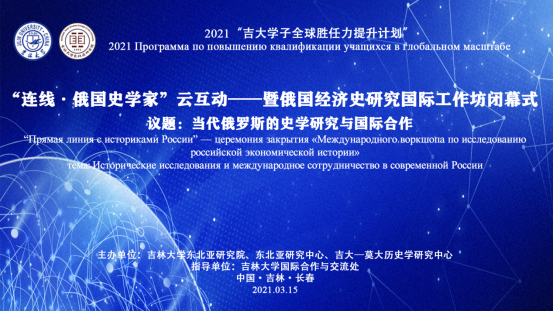
The online lecture from March 2nd to 11th was hosted by Professor Zhang Guangxiang from Northeast Asian Studies College, distinguished professor of Kuang Yaming Distinguished Professor of Jilin University. Eight scholars from Faculty of History of Moscow State University and the Institute of Russian History of the Russian Academy of Sciences gave lectures on topics such as Russian industry, banking, taxation, currency, foreign trade, entrepreneurship and the state of the local economy.
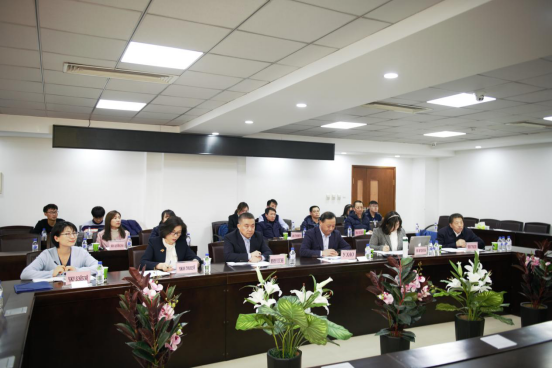
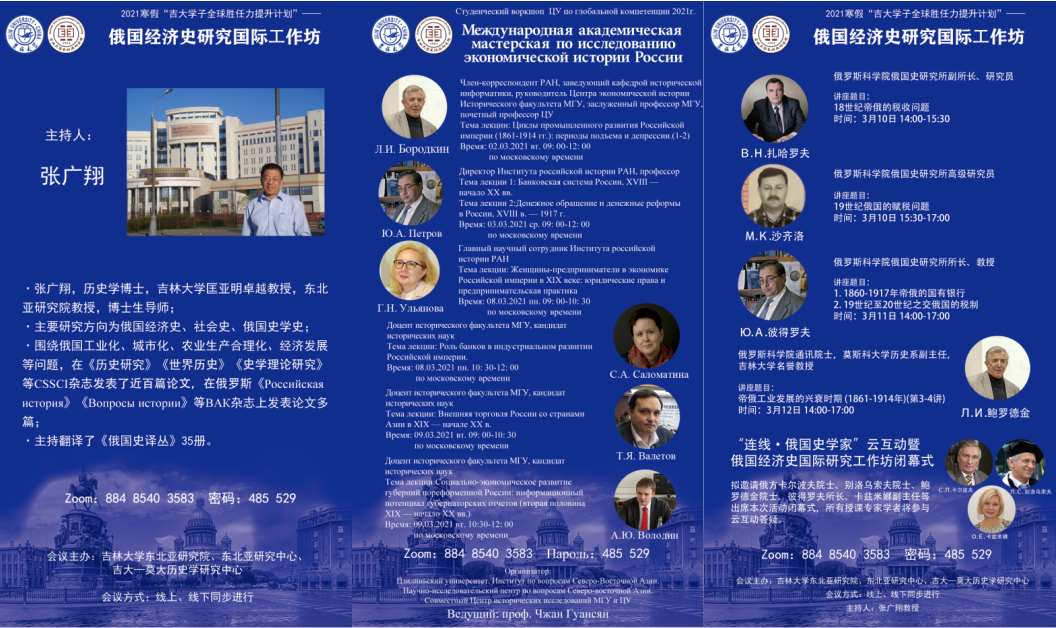
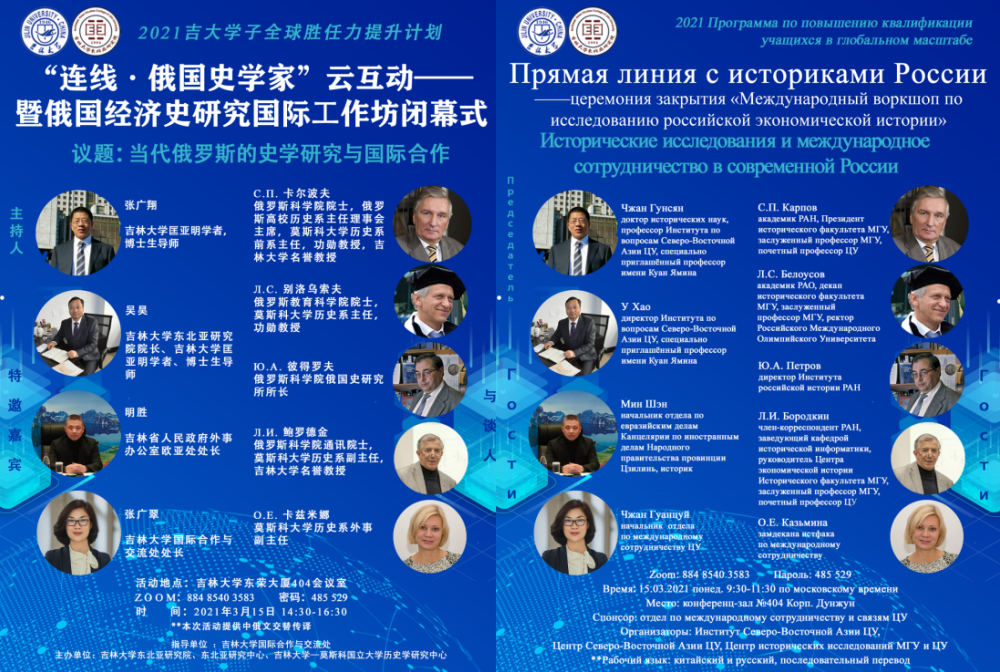
On March 2nd, Professor Л.И. Borodkin gave two lectures on the theme The Rise and Fall Cycle of Industrial Development in Imperial Russia (1861-1914).
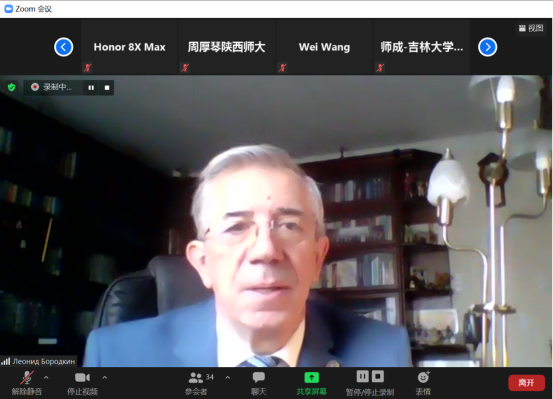
On March 3rd, Professor Ю.А. Petrov, Director of the Institute of Russian History of the Russian Academy of Sciences, opened a series of lectures on the field of banking, currency and tax rates in Russia, two lectures on Currency Circulation and Currency Reform in Russia (18th century-1917) and The Russian Banking System (18th-early 20th century).

On March 8th, Г.Н. Ulyanova, Chief Researcher of the Institute of Russian History of the Russian Academy of Sciences, gave a lecture entitled Women Entrepreneurs in the Imperial Russian Economy in the 19th Century: Legal Rights and Business Practices.
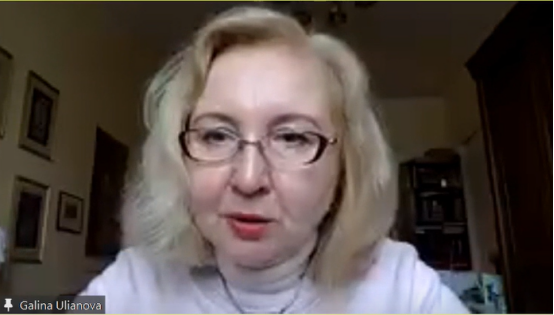
On the same day, Associate Professor С.А. Salomatina of Moscow State University gave a lecture on the topic The Role of Banks in the Industrial Development of Imperial Russia.

On March 9th, Associate Professor Т. Я. Valletov of Faculty of History at Moscow State University gave a lecture on Foreign Trade between Russia and Asia in the 19th and Early 20th Centuries.
On the same day, Associate Professor А.Ю. Volodin of Faculty of History at Moscow State University gave a lecture entitled Socio-economic Development of the Post-reform Russian provinces: Information Potential of the Governor's Report.
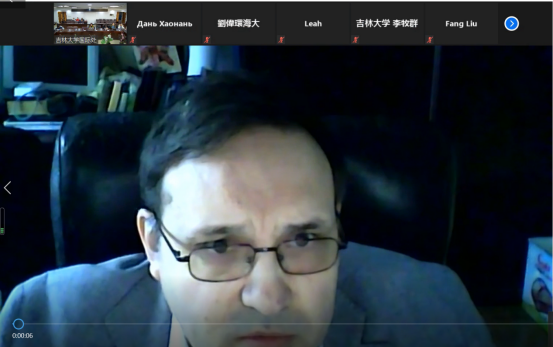
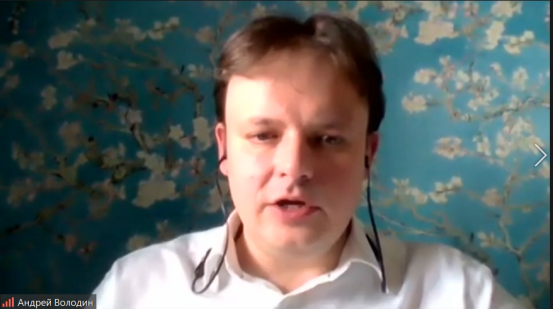
On March 10th, Professor В.Н. Zakharov, Deputy Director and Research Fellow of the Institute of Russian History of the Russian Academy of Sciences, gave a lecture entitled Taxation in Imperial Russia in the 18th century.
On the same day, Shakiro, a senior researcher at the Institute of Russian History of the Russian Academy of Sciences, introduced the audience to the history of the development of taxation in Russia in the 19th century on Taxation in Russia in the 19th century, using the reform actions of Speransky, Guriev and Kanklin as a main line.
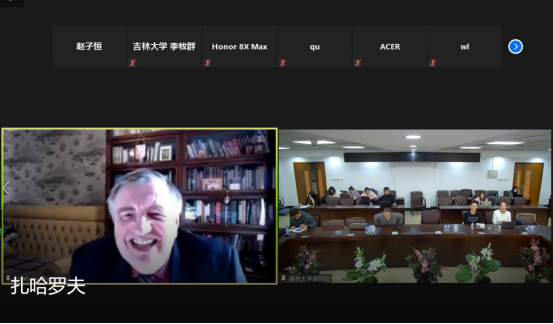
On March 11th, Professor Ю.А. Petrov gave two lectures entitled State Banks in Imperial Russia 1860-1917 and The Tax System in Russia at the Turn of the 19th-20th Centuries.
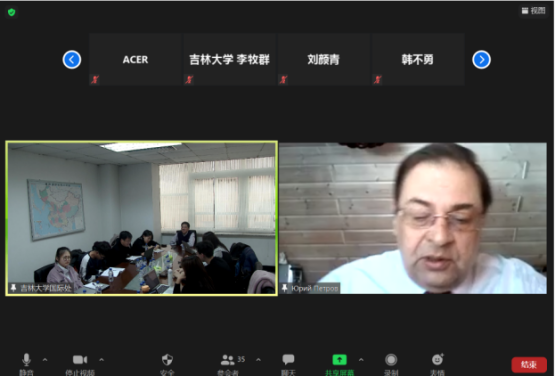
On March 12th, Prof. L. I. Borodkin gave a detailed presentation on the award of the Russian Humanities Fund to the Department of History and Information Studies of Faculty of History at Moscow State University and launched the electronic resource thematic database Changes in the Economic and Social Development of Russia in the 19th - early 20th centuries in January 2010.
On March 15th, the closing ceremony of the "Via Video Link Russian Historians" Online Interaction, The International Workshop on the Study of Russian Economic History with the theme of Historical Research and International Cooperation in Contemporary Russia was successfully held. At the closing ceremony, Academician Karpov, member of the Russian Academy of Sciences, Chairman of the Council of Heads of History Departments of Russian Universities, former Head of the Department of History of Moscow University, Meritorious Professor and Honorary Professor of Jilin University, Academician Belousov, member of the Russian Academy of Education and head of the Faculty of History of Moscow State University, Professor Petrov, Director of the Institute of Russian History, Russian Academy of Sciences, Professor Kazmina, Corresponding Member of the Russian Academy of Sciences, Deputy Head of the Faculty of History of Moscow State University, Honorary Professor of Jilin University, Corresponding Member of Borodkin, Deputy Head of Foreign Affairs of the Faculty of History of Moscow State University, Wu Hao, Director of Northeast Asian Studies College and Professor of Northeast Asian Research Center, Jilin University. Mr. Ming Sheng, Director of Eurasia Division, Foreign Affairs Office of Jilin Provincial People's Government, Ms. Zhang Guangcui, Director of Office Global Engagement of Jilin University, delivered lectures in succession.
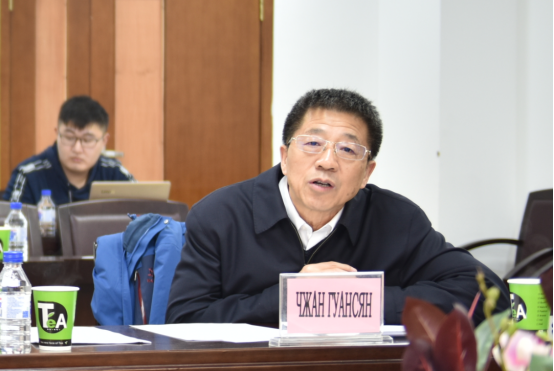
President Wu Hao said in his speech that the Northeast Asian Research Center of Jilin University is a major research center on Northeast Asian issues in China, and it is a specialized research institution on Northeast Asian issues with the largest number of researchers, the most complete range of disciplines and the greatest influence nationwide. It is hoped that scholars from both China and Russia will further strengthen cooperation and exchanges, especially the cooperation between the Northeast Asian Research Center of Jilin University and the Faculty of History of Moscow State University will be deepened, and make greater contributions to the development of strategic partnership between China and Russia and humanistic exchanges between the two countries.
In his speech, Academician С.П.Kapnoba affirmed the achievements of Jilin University and Moscow State University in the study of Russian history and Russian-Chinese exchanges, spoke highly of the Russian History Translation Series translated by Professor Zhang Guangxiang's team, and sincerely wished that this Russian historical school led by Professor Zhang Guangxiang could cultivate more promising young scholars. He also pointed out that this year marks the 100th anniversary of the founding of the Communist Party of China, and both China and Russia should attach importance to the history of the Communist Party. Studying the relationship between the two countries and the two parties is conducive to deepening mutual understanding between the two countries and their peoples.
The International Workshop on the Study of Russian Economic History attracted many scholars and students from the Northeast Asian Research Center of Jilin University, the School of Foreign Languages of Jilin University, Fudan University, Wuhan University, Beijing Foreign Studies University, Central China Normal University, Shaanxi Normal University, Northeast Normal University, Heilongjiang University, Northwest University, Changchun Normal University, Harbin Normal University, Qufu Normal University and Anhui Normal University, as well as master's and doctoral students of world history from the Northeast Asian Research Center of Jilin University.
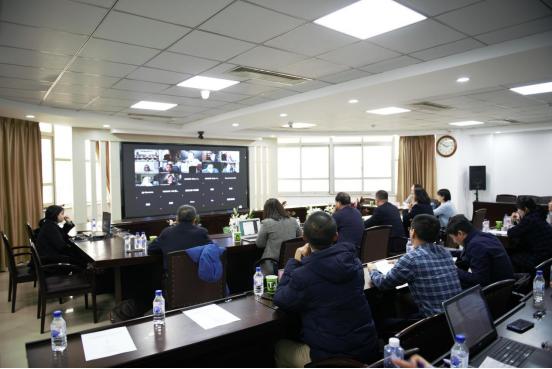
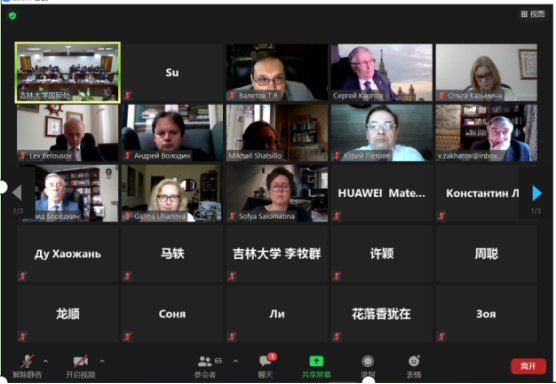
The lectures by the Russian experts and scholars were excellent, exploratory and far-reaching, and were well received by the participants both online and offline. The workshop broadened the research horizons of our Russian history research team in the fields of imperial Russian history and economic history, and helped to cultivate students' professional abilities, solidify their basic knowledge of world history and culture, the use of historical materials and historical theory. The course will provide young scholars and current students with a source of fresh water to enhance their ability to develop sustainable historical research, to learn, work and relate effectively in an international and multicultural environment, and to develop global competencies.

